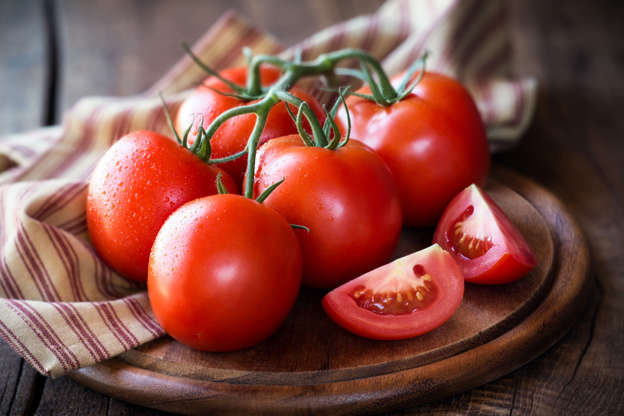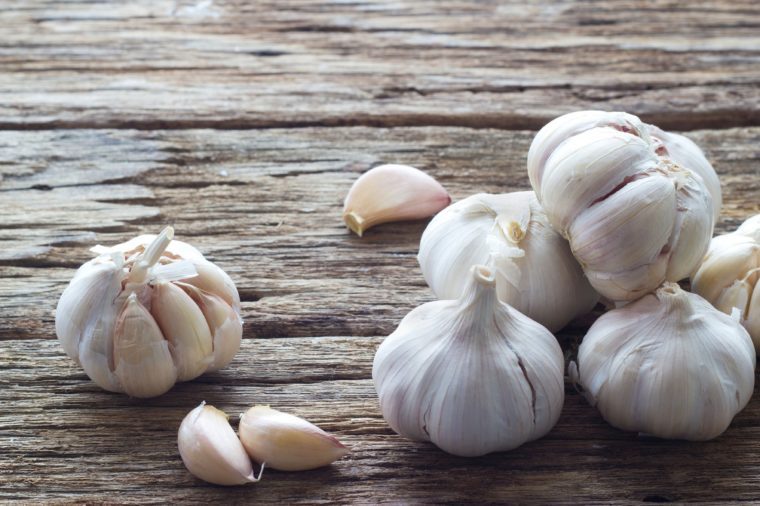12 foods you should never store in the fridge
Storing bread in the fridge will cause it to dry out and become stale much more quickly.

Picture: iStock
You may shove most of your perishable food items into the fridge when you’ve done your grocery shopping, but some of them don’t do well when chilled.
Some can even perish faster in the fridge or change in taste or texture.
Here are the ins and outs.
Tomatoes

Picture: iStock
Tomatoes don’t like being cold. The cool temperatures of a fridge can change their flavour and texture. The cold air in the fridge stops the ripening process. Ripening develops their flavour.
Returning them to room temperature after they’ve been in the fridge won’t bring back their full flavour. If you want tasty, sun-ripened, juicy tomatoes, keep them in a bowl or basket on your kitchen counter.
Onions

Picture: iStock
Onions should be kept out of the fridge in a cool, dry place. The moisture in a fridge will make onions soft and mouldy. Their intense smell will also affect other food in the fridge.
Spring onions, scallions and chives can be stored in the refrigerator because of their higher water content. Onions should be kept separate from potatoes because they cause each other to deteriorate faster.
Garlic

Picture: iStock
Garlic will start to sprout in the fridge and may get rubbery and mouldy. Instead of refrigerating it, keep it in a cool, dry place out of packaging.
Potatoes

Picture: iStock
Potatoes should be stored in a cool (not cold), dark place in a paper bag or cardboard box – not in plastic. They should be able to breathe, which plastic does not allow. Keep potatoes separate from onions.
They should not be stored in a fridge as the cold temperatures in the fridge will turn the starch in potatoes into sugar resulting in sweet, gritty potatoes. This applies to sweet potatoes as well.
Basil

Picture: iStock
Basil will wilt fast in the fridge. It should be kept out of the fridge in a glass container in fresh water. You can blanch it and then freeze it.
Bread

Picture: iStock
Storing bread in the fridge will cause it to dry out and become stale much more quickly. Keep it at room temperature, or freeze it if you plan on keeping it for longer. Ensure that it’s completely thawed before eating it.
Oils
Oils, with the exception of nut oils, should not be stored in the fridge as they will thicken and develop a cloudy consistency which does however go away when removed from the fridge. Rather store them in a cool, dark place.
Honey

Picture: iStock
Honey does not have to be stored in the fridge – in fact one of its qualities is that it will stay fresh if it is tightly sealed. Even when the jar has been opened it can be stored in an airtight container.
Keeping honey in the refrigerator will thicken it making it hard to spread and can cause it to crystallise.
Coffee

Picture: iStock
If you store coffee grounds or beans in the fridge they will lose their flavour and absorb some of the odours in the fridge, which could alter their flavour.
Store your coffee in a cool, dark place in an airtight container where it will retain its flavour and freshness.
Peanut butter

Picture: iStock
Peanut butter becomes hard in the fridge making it difficult to spread. It’s fine at room temperature.
Bananas

Picture: iStock
If you put them in the fridge the peels will turn black, but the insides will still be fine.
Butter

Picture: iStock
This is a hotly contested one. The official USDA guidelines recommend freezing butter if you are not going to use it within 1 – 2 days. It says butter can be left out of the fridge for 10 to 15 minutes to soften it for spreading.
But many people keep their butter at room temperature in a covered dish.
Read the original article on Alberton Record
For more news your way, download The Citizen’s app for iOS and Android.
For more news your way
Download our app and read this and other great stories on the move. Available for Android and iOS.










